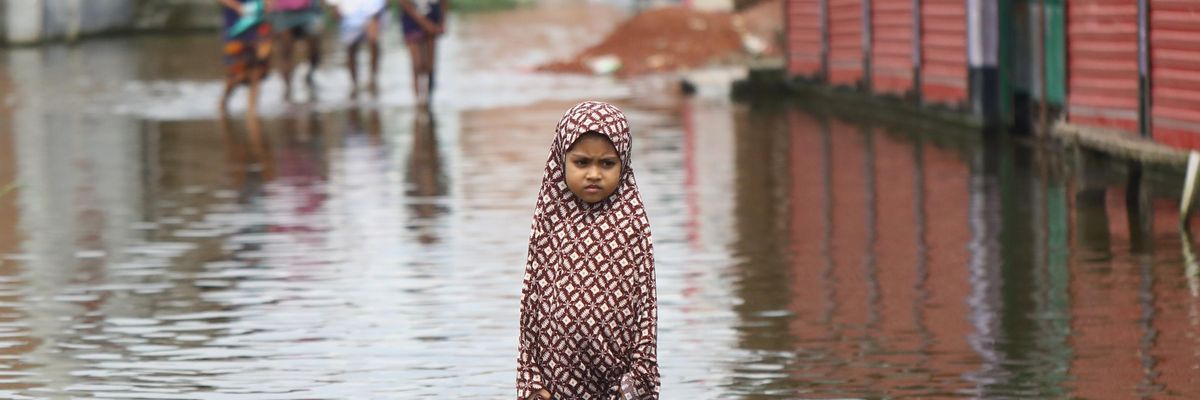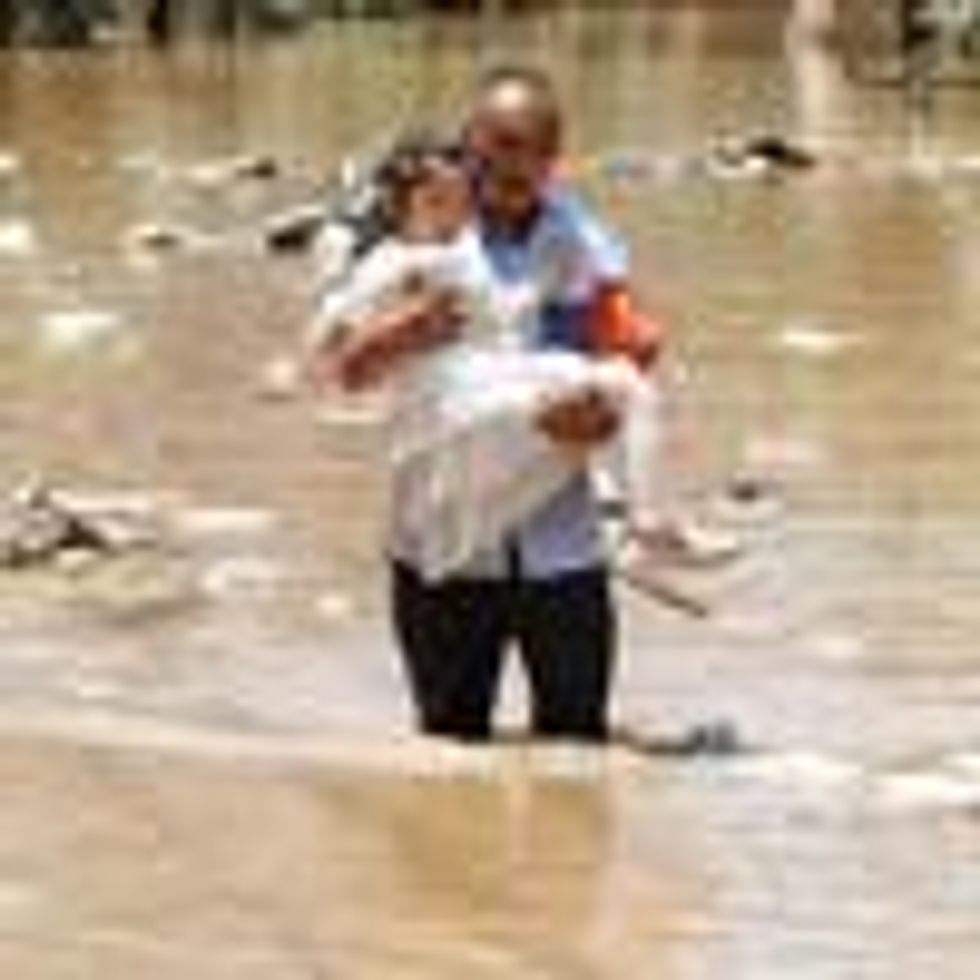As global leaders marked "Adaptation, Loss, and Damage Day" at the United Nations Climate Change Conference in Glasgow, Scotland Monday, a new study detailed the vast scope of economic damage that awaits the world's most vulnerable economies if the Global North continues burning climate-heating fossil fuels while offering only "paltry" support for poor nations.
Commissioned by Christian Aid and authored by Marina Andrijevic, a researcher at Humboldt University in Berlin,
"Lost and Damaged" details "the likely extent of economic damage to the world's poorest and most vulnerable nations in two possible futures"--one in which governments succeed in constraining fossil fuel emissions and limiting global heating to 1.5degC by 2100, and one in which they fail.
In the latter scenario, the planet is expected to heat up by nearly 3degC by the end of the century, which would result in plummeting gross domestic product (GDP) for the 65 most vulnerable countries by an average of 20% in the next three decades.
The countries stand to lose an average of 64% in GDP by 2100 if the world continues on its current trajectory.
"It's time for rich nations and polluters to pay up for loss and damage," tweeted Christian Aid.
"The fact rich countries have consistently blocked efforts to set up a loss and damage fund to deal with this injustice is shameful."
Eight of the 10 most vulnerable countries are in Africa, and two are in South America, with Sudan topping the list of nations where people will suffer the greatest economic impacts of insufficient climate action by the Global North.
Under the current climate trajectory, Sudan is expected to lose 83.9% of its GDP by 2100. The country was forced to declare a three-month state of emergency in 2020 due to extreme flooding, which directly affected about 900,000 people. In September, more than 15,500 homes were destroyed and about 100,750 people were displaced by heavy rains and flash flooding.
Should the Global North follow through on the goals set for the climate change summit (COP26)--limiting global heating to 1.5degC--Sudan would lose more than 51% of its GDP by the end of the century, driven by the effects of the climate emergency, according to the report.
"Underlying the injustice of climate change," the study said, is the fact that vulnerable countries like Sudan "have done the least to cause the climate change they are suffering from and will suffer into the future."
"The mean average per capita carbon emissions of the top 10 most impacted countries is 0.45 tonnes," the authors added, while "the average American (per capita 16.1 tonnes) is responsible for more carbon dioxide than 36 people from these 10 countries."
The study, which was released at COP26, underscores "the glaring need for a concrete loss and damage mechanism to deal with this economic fallout" in addition to drastically reducing carbon emissions immediately and helping poor nations to adapt to the climate crisis, said Mohamed Adow, director of the climate think tank Power Shift Africa, which is based in Nairobi.
"
For many of us in vulnerable countries, adapting to climate change is no longer enough," said Ugandan climate justice advocate Vanessa Nakate. "You cannot adapt to starvation. You cannot adapt to extinction. We must put Loss and Damage at the center of the COP26 negotiations."Related Content
'This Is an Emergency': Oxfam Says Rich Nations' $100 Billion Climate Pledge Not Good Enough
Andrea Germanos
A report released by the Organization for Economic Co-operation and Development (OECD) earlier this year showed that in 2019, about 25% of climate funding from the Global North went to helping countries adapt to the climate emergency and 75% went to reduce carbon emissions in vulnerable countries--instead of support for loss and damage already caused by the climate crisis.
A $100 billion annual climate support pledge made by wealthy nations was supposed to reach the Global South beginning in 2020, and has now been
pushed to 2023.
A separate funding package just to cover loss and damage for poor countries "is the only way we will be able to give our people a better chance at surviving, given the growing scale of the crisis," Le-Anne Roper, lead negotiator on loss and damage for the Alliance of Small Island States (AOSIS), told the BBC Monday.
"Africa has done the least to cause climate change yet this report shows it will face the most severe consequences,"
said Adow. "That is deeply unjust. The fact rich countries have consistently blocked efforts to set up a loss and damage fund to deal with this injustice is shameful. That attitude needs to change here in Glasgow. Not only because it is needed, but the bill will only get bigger if rich countries continue to ignore the needs of the most vulnerable."
Even if policymakers succeed in limiting global heating to 1.5degC, the 10 most impacted countries stand to lose 40% of their GDP, and on average the Global South countries are expected to lose about 33%.
"The ability of countries in the Global South to sustainably develop is seriously jeopardized" by the human-driven climate emergency, said Andrijevic in
a statement. "Policy choices that we make right now are crucial for preventing further damage."


